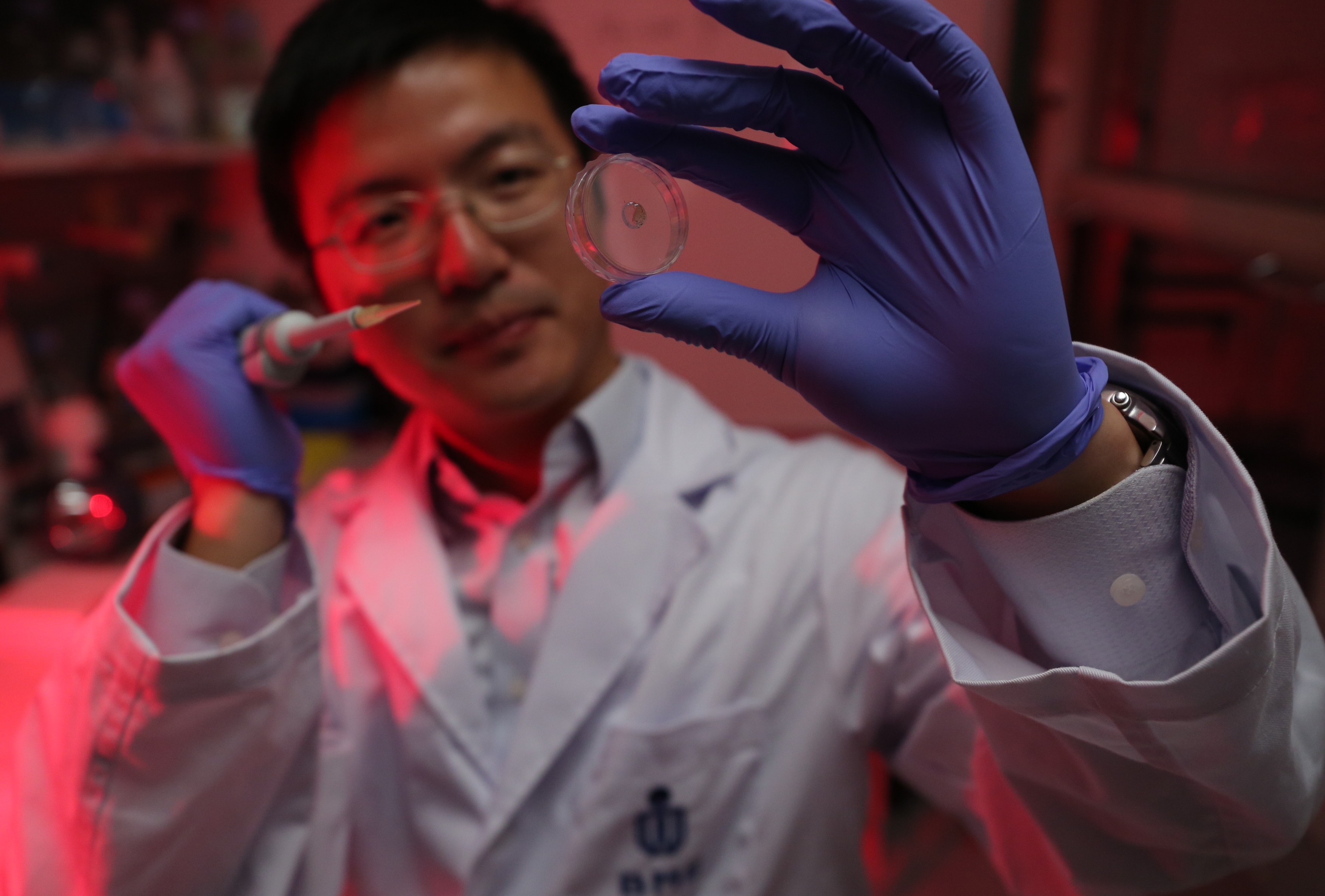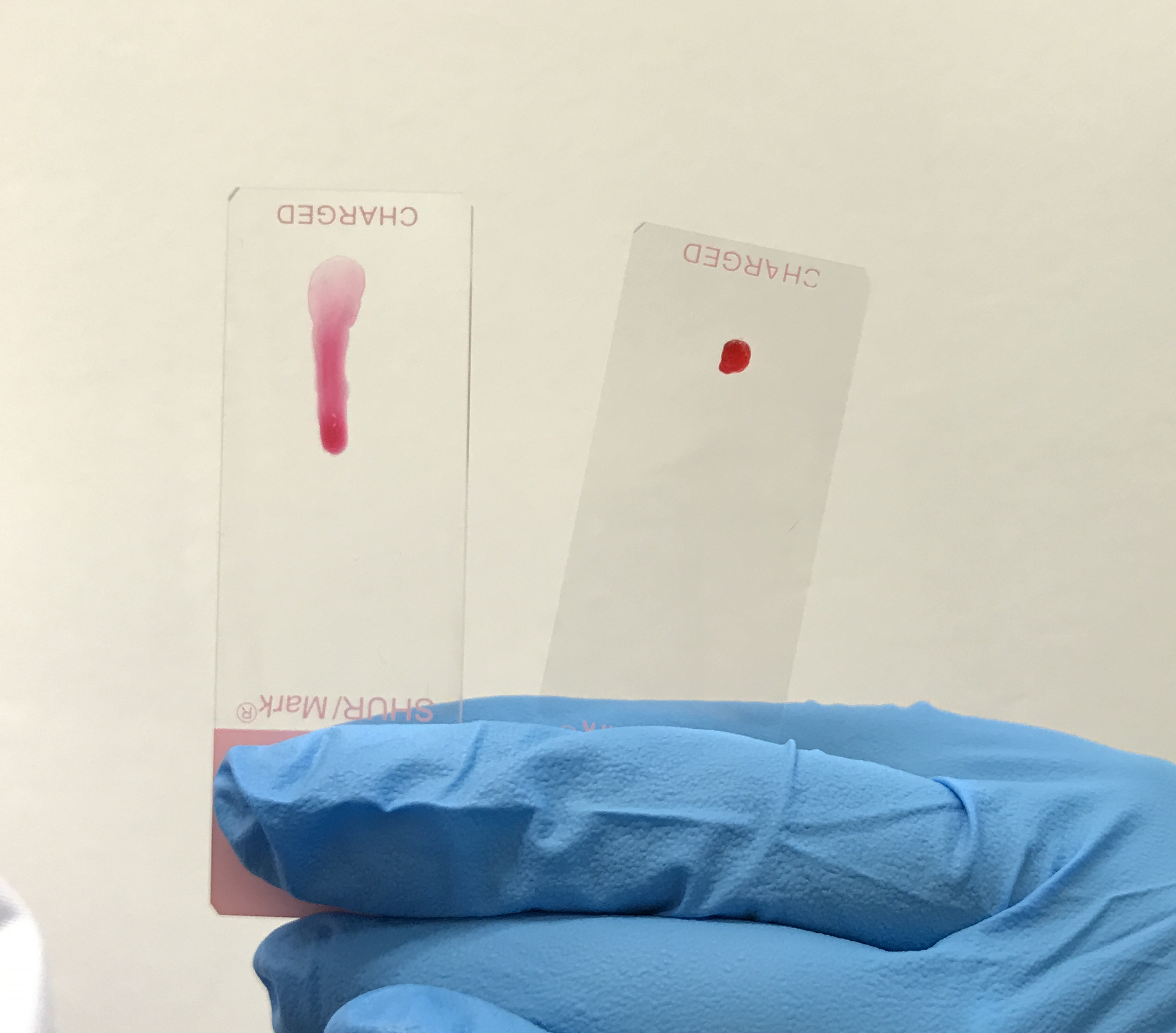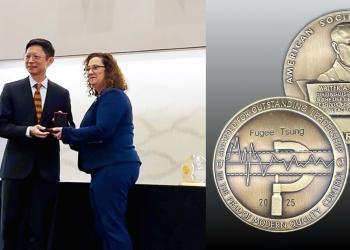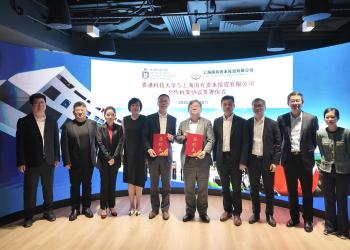HKUST Develops New Stimuli Responsive Smart Hydrogels That Open Doors for Future Material Biology and Biomedical Applications
A research team led by Prof SUN Fei, Assistant Professor of Chemical & Biological Engineering at The Hong Kong University of Science and Technology (HKUST), has created a new protein-based stimuli-responsive smart hydrogel that could open doors for future material biology and biomedical applications.
Hydrogels, also known as soft matter in the medical world, are leading materials for biomedical applications such as drug delivery and stem cell therapy. But traditional hydrogels, used in products such as facial masks and contact lenses, are made up of either synthetic polymers or biological extracts such as animal collagen, are likely to cause allergies. They cannot fully mimic the complex biological environment needed for cell growth and development.
Not only is the new smart hydrogel developed by Prof Sun’s team suitable to act as a carrier for stem cells which are key components for regenerative medicine, but also can control the time and manner regarding drug delivery inside human body due to its light sensing function.
To create this novel hydrogel, the team assembled genetically-engineered proteins into molecular networks by stitching together the photoreceptor C-terminal adenosylcobalamin binding domain (CarHC) proteins at room temperature. The synthesis relies solely on bacterial culturing – a process similar to fermentation. The composition of the resulting hydrogel resembles that of human tissues and thus can be used to deliver live cells into human bodies while potentially minimizing allergies and body rejection. As a drug carrier, this photo-responsive hydrogel can quickly switch from solid to liquid upon light exposure, thus allowing drugs to be released into the body in a controlled manner. The strategy of creating entirely protein-based hydrogels represents a new way to design bioactive materials with precise control over their properties.
The research findings were published in the journal PNAS on June 6, 2017.
“Demand for smart hydrogels is growing, the direct assembly of stimuli-responsive proteins into hydrogels opens up enormous opportunities not just for future material biology, but also medical treatment.” Prof Sun said. “In theory, hydrogels can serve as carriers for stem cells in regenerative medicine to promote the healing of damaged organs, which means organ transplantation may no longer be patients’ only solution in the future.”
About The Hong Kong University of Science and Technology
The Hong Kong University of Science and Technology (HKUST) (www.ust.hk) is a world-class research university that focuses on science, technology and business as well as humanities and social science. HKUST offers an international campus, and a holistic and interdisciplinary pedagogy to nurture well-rounded graduates with global vision, a strong entrepreneurial spirit and innovative thinking. HKUST attained the highest proportion of internationally excellent research work in the Research Assessment Exercise 2014 of Hong Kong’s University Grants Committee, and is the world’s second in the latest QS’ Top 50 under 50 ranking. Its graduates were ranked 13th worldwide and top in Greater China in Global Employability University Survey 2016.
For media enquiries, please contact:











